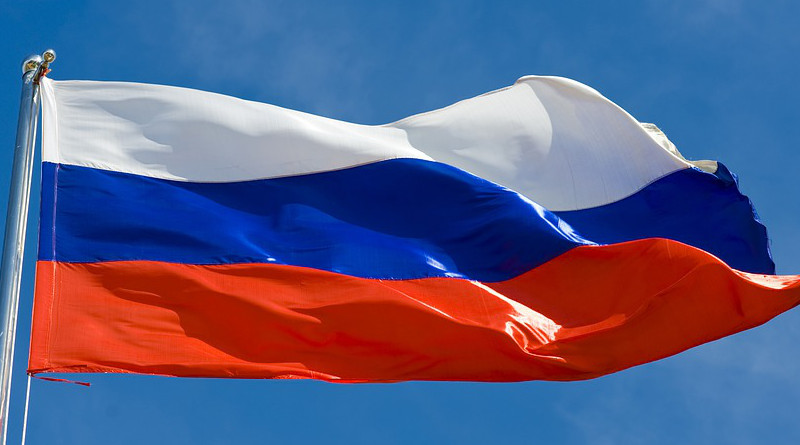More Russians Willing To Support Radical Nationalists
By Paul Goble
The most dangerous result of this week’s clashes in the youth camp in Tuapse and of violence by Chechen migrants in Russian cities is the growth of support among many formerly apolitical Russians for extremist Russian nationalist groups, a trend exacerbated by Ramzan Kadyrov’s demand that Moscow give a clear political assessment of these events.
In an article in today’s “Vremya novostei,” Ivan Sukhov argues that this is the case for two reasons. On the one hand, such “’domestic’ conflicts,’” a term officials use to describe these events no longer has much credibility because such increasingly frequent clashes involve members of particular ethnic groups (www.vremya.ru/2010/134/4/259079.html).
And on the other, Kadyrov and other Chechen leaders want to have it both ways. Immediately after the Tuapse clashes, they blamed Russians for attacking Chechens and even suggested that the 2014 Sochi Olympics might be at risk if Moscow couldn’t improve ethnic relations in the region.
But yesterday, Kadyrov, responding to the anger those statements generated, backed down and said that the Chechen regime does not consider the clashes in the Tuapse camp “inter-ethnic or inter-religious.” At the same time, however, he demanded that Moscow give “a political assessment” of what happened, something Sukhov says the center cannot do.
Kadyrov also such to placate Moscow and Russian public opinion by insisting that there have been “marked changes for the better on questions of international relations in Russia,” something Moscow may want to hear but that as Sukhov points out, “all the events of recent times testifies to the reverse.”
“Sociologists,” the journalist notes, “have found already for a long time that those who come from the Russian North Caucasus, while being our fellow citizens, ever more often are viewed by other Russians as neighbors inside the country with whom they are forced to live but very much do not want to.”
Recent Internet polls suggest that such attitudes are intensifying among Russians, Sukhov says, with an increasing number prepared to get expel Chechnya from the Russian Federation and Chechens from their own midst. Such people, the journalist continues, are fed up with “rhetorical appeals about ‘a common home’ and inter-ethnic peace.”
And that in turn has had a major impact on Russian attitudes more generally. “If in the 1990s and the early 2000s, radical nationalists had an extremely insignificant ‘civil of sympathy’] in large Russian cities, now the base of their support is growing before [our] eyes, taking in even those circles which were either absolutely apolitical or led by completely internationalist ideas about the world.”
This development, Sukhov says, is hardly something to be “pleased” about. But it is Kadyrov’s demand for a political assessment of the Tuapse and other cases that is a task Moscow cannot carry out. To do so, the Russian journalist points out, “would mean to take one side or the other, and this is impossible for the federal powers that be.
First of all, he writes, “the behavior of the Chechens which as the law enforcement organs acknowledge generated a pogrom in the camp to a large extent is the result of the Caucasus policy of the federal center over many years, of a war which deprived several generations of Chechens of the chance for normal socialization and the follow on attempt to redeem the evil it had committed by a large number of preferences over given not to those who really suffered from the war.”
“To admit this would be to place under doubt the entire Caucasus policy of recent years,” Sukhov says.
At the same time, to declare the ethnic Russians involved guilty would lead to more anger “and possibly also hatred among the ethnic Russian policy, which still forms the majority in the country and from whom the success of the powers that be in upcoming federal elections somehow depends.”
But Moscow cannot generate a political assessment which spreads the blame to both sides of the conflicts “because in this case, it would all the same have to admit that reality is very strongly distinguished from slogans about a single civic nation,” something that the powers that be for all their talk of this have done little to create.
This dead end which Moscow finds itself in thanks to Kadyrov’s demands, Sukhov says, helps to explain the attention now being given to the idea of drafting some sort of code of behavior for Chechens and others coming from the North Caucasus into predominantly Russian regions and cities.
That idea appears to be gaining official support in the regions and in the offices of the North Caucasus Federal District. But those supporting it do not recognize that “in healthy societies, formed in reality of a single social-political organism, the functions of which are regulated by law and not by force or archaic customs do not need such rules.”
In such societies, these rules of behavior “exist and are communicated by themselves,” Sukhov points out. Where they do not exist, as in Russia today, any effort to impose them by fiat is certain to prove counter-productive, especially when the dominant ethnic community is increasingly infected by the virus of extremist nationalism.

